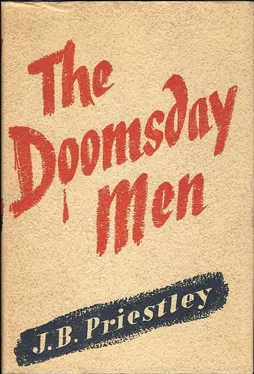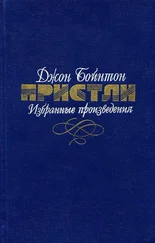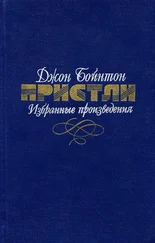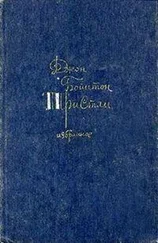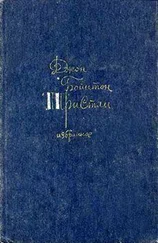John Boynton Priestley
The Doomsday Men
THE DOOMSDAY MEN
an Adventure
by J. B. PRIESTLEY
The Doomsday Men by J. B. Priestley
First published London: Heinemann, 1938
Copyright © 1938 by J. B. Priestley, renewed 1965
To DOROTHY BROOKE
Dorothy, I must begin
By warning you : here's fantasie ,
A fairy - tale in Western rig
( For a wet night in some country inn )
Which please accept in memory
Of Jane and me, Grahame and Fig ,
Of desert, mountains and blue air ,
The canyons, camps and buffalo steak ,
The maestro - works you crayoned there ,
The nonsense that we'd find-or make .
( Sometimes I thought there seemed to be
Not five but six: as if we'd share
Our laughter and the heart's quick shake
Of joy with one we could not see ).
As through the desert hills we'd go
And bounced inside that dusty car ,
I cast us in this puppet show
And made each puppet bravely shine ;
Though you, I think, are braver far
Than these adventurers of mine ;
And being wise as well you'll know
The idle tale is not quite all ,
As children playing games may throw
Strange threatening shadows on the wall ;
In such a world could I do less?
So here, it's yours. Good night, God bless!
CHAPTER ONE
THE ADVENTURE OF THE TENNIS PARTNERS
It was the last day of the Tennis Tournament at Beaulieu, on the French Riviera. The late winter afternoon was fine, with plenty of brilliant sunshine, but as usual there was an undercurrent of cold, even of impending frost, beneath the surface of sunlight, giving the golden afternoon an unreal, theatrical quality. The little stand on the centre court was crowded with those people-the rich and the entertainers of the rich-who appear to be living a zestful and glittering life of pleasure in their photographs in the illustrated papers, and who so often are as dull, fretful, bored, as the other people who stare with envy at those photographs. They were not bored now, however, for the final of the Mixed Doubles had just begun, and it was a good match. On one side were Grendel, that long-haired, temperamental Czech, who would sometimes double-fault himself out of a game and then at other times hurl thunderbolt services like a maddened Jupiter; and Madame Tissot, a squat and powerful young Frenchwoman, as calculating as if every point cost a hundred francs, an icy terrible female to see across a net. The other pair presented a very different appearance. Malcolm Darbyshire was English, and slim, fair, good-looking, an Englishman of the more expensive films. He was not like most of the finalists, a tennis amateur who spent as much time playing as most professionals; he did not go from tournament to tournament, and his life was not bounded by Wimbledon and Forest Hills; he had no official rating from the Lawn Tennis Association; but instead had a profession-that of architect-and actually worked at it. But he was a good player, no doubt about that, and was playing well now, though he and his partner were in danger of losing this first set. She appeared on the blackboard as Andrea Baker, though nobody there could say whether this was her real name or not, for she was even more of a dark horse than Malcolm Darbyshire. But unlike many of the women players present, she did not look like a horse. She was a dark, golden-skinned American girl, a beauty, who was playing a quick sure game, darting like a great bird from the base-line to the net; and yet with something puzzling about her, not merely because she was an unknown who ought somehow to be well-known, but also because there was something about her oddly untrue to type. She ought by this time, after a week of play on those courts, to have been alight, all fire and energy and enthusiasm, with eyes like caverns filled with smoke and flame. It was all wrong. This girl was no blonde champion of the world, and had no excuse for wearing a poker-face. Who was she that she should look so composed, almost sleepily composed, almost listless, except when actually playing the ball? Some of the spectators, who were not all fools, wondered about her. She had been the mystery girl of the Tournament. Throughout she had played her matches, and then promptly disappeared, a large car, driven by a little brown chauffeur, taking her away. She appeared to have no friends; she was obviously rich, and an American, young and a beauty, and a good tennis player, and yet she merely played, made a polite remark or two, nodded, smiled faintly, and then disappeared. No lemon-squash or cocktails in the bar of the Bristol Hotel; no dancing nor dashes at night to the Casino at Monte Carlo; no moonlit kisses, no fun; she hurried into the extravagantly large car every day and vanished. So players and spectators alike had announced, in five different languages, that this was a very odd girl.
Malcolm Darbyshire had been telling himself this all the week. Now, when he ought to have been concentrating entirely on the match they were losing, he was still worrying about her. As her partner from the first day, when they were brought together because neither of them had arranged to have a partner in the Mixed, he ought to have known more about her than anybody there, but he knew no more than the rest did, and had been compelled, rather reluctantly, to say so a good many times. But whereas they were still merely curious, he was worried. This was their last day. In an hour or so she would disappear into that confounded car again, and this time disappear perhaps for ever. And now he did not want her to disappear. He wanted to know all about her, not merely where she came from and where she had played before, but every little thing about her; and in exchange for her confidences he had a great desire to tell her all about himself, how he had decided to drop out of first-class tennis because he was really keen on his profession, how he had just secured a very junior partnership in a good London firm of architects and had been allowed to submit designs in minor competitions, had already had a hand in the building of a Council School, a church, and a small country house, and what he thought about politics, novels, music, food, drink, tobacco, travel, clothes, his two uncles, his sister’s husband and a thousand other things. Not for years, perhaps never before, had he felt so strong a desire to impart these confidences to a girl, or to listen at any length to any confessions she might like to make. He was twenty-eight; his tennis and good looks had taken him round a bit; he felt a mature sceptical male; and yet now, instead of enjoying this hideously expensive, tennis-playing holiday, snatched from the winter as a reward for an extra spell of hard work, he was spending most of the day and half the night thinking about this Andrea Baker girl, who might have been the Venus de Milo in shorts for all the response he had from her. True, she now answered his smiles of approval, which he felt were developing in their despair into idiotic broad grins, with tiny reluctant smiles of her own; and she had admitted that it was a nice day again or that they might have a hard match; but he was as far away from any possible exchange of confidences, any rapturous midnight confessions, as he had been a week ago. Now he found himself alternating between being angry with her and with himself, for being such a chump, and behaving like a neglected spaniel, an unpleasant role and one not easy to sustain on a public tennis court. Damn her eyes! And what eyes too!
Читать дальше
